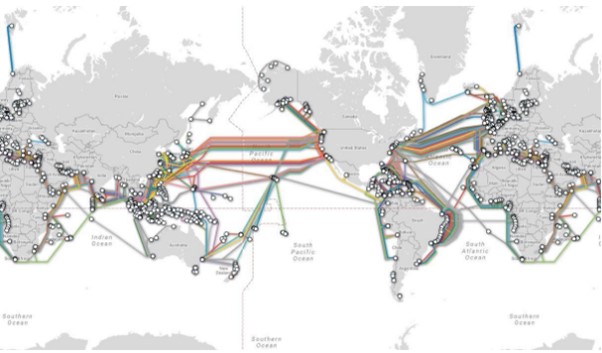From the UK to Brazil: digital health and the platformization of public health systems
Raquel Rachid, Marcelo Fornazin
The increasing processes of digitalization of public health systems and the transformative turn brought by digital technologies are ever more experienced by users. These include computerizing medical records, implementing digital hospital administration mechanisms, utilizing digital surgical equipment, and digital diagnosis solutions. A nuanced aspect of this digital landscape reveals political guidance paving the way for the digitalization of public services amid notable changes within the state apparatus.
In an article published in 2023 analyzing digital health in the Brazilian National Health System (SUS), the authors identified how an entrepreneurial discourse from business models was incorporated into the Digital Health Strategy for Brazil. This strategy, published in 2020 by the Brazilian Ministry of Health (MoH), would lead to the State platformization benefiting a data market and spreading private technological infrastructure.
Similar issues in the United Kingdom (UK) were observed by Rachel Faulkner-Gurstein and David Wyatt, which provided insights on how policymakers have made the National Health Service (NHS) part of an ecosystem for research directed towards supporting businesses. Through an entrepreneurial approach, the NHS data would potentially be franchised for clinical trials and the pharmaceutical industry. This political direction to “open up the NHS” was sedimented in 2011.
In January 2020, an agreement was signed between the Brazilian MoH and the UK Ministry of Foreign Affairs for digital health cooperation. Therefore, it is worth bringing some insights into the discourses and practices of digital health in both countries.
The State as a data provider to business
Since there is a constraint involving public services digitalization through a framework that opens up possibilities for the private sector to act as a delegated partner of the State, it influences public policy decisions in a way that exempts the public administration from requiring specific and predetermined services.
Mariana Mazzucato and Rosie Collington, in their book “The Big Con”, suggest that governments were encouraged to outsource public sector digitalization, whilst consultancies would internationally operationalize guidelines provided by international organizations mainly dominated by “developed countries”.
The agreement signed between the Brazilian MoH and the UK established McKinsey consultancy as an “implementing partner”. A techno-solutionist managerial rhetoric was observed in official Brazilian and international documents, e.g., reports produced by Organisation for Economic Co-operation and Development (OECD) and World Health Organization (WHO). Whereas the Brazilian MoH confirmed that the UK influenced the formulation of the Digital Health Strategy for Brazil, there is still an issue involving the unavailability of public information referring to the details of this partnership.
So, privatizing public health services is not only a Brazilian issue, considering the ongoing processes involving NHS, which has a considerable history of spending public resources on consulting contractors for outsourcing.
What about the risks of data sharing?
Today, Amazon Web Services stores Brazilian public health data lacking evidence in accordance with the national law on data protection, and Palantir (a company linked to the spurious provision of intelligence services) will be in charge of this matter for the UK. Whilst these policies affect entire populations by processing sensitive health data, international technology companies tend to benefit economically.
Additionally, in the case of Palantir, there is also open institutional support for Israel over the massacre against Palestinians. This fact cannot be put apart from the use of huge private platforms to mobilize business intelligence tools for the persecution of already stigmatized groups. In Brazil, an ongoing project in São Paulo, the country’s most populated city, intends to provide the platformization of municipal public services. Under the leadership of the security secretariat, the Smart Sampa project polemically suggested monitoring people by their skin color.
Some studies will refer to “data colonialism” and “digital colonialism” in order to mention this tendency of submitting some regions to a few countries in the sphere of digital markets. We remember the question Roswhita Scholz posed on fragile evaluations that analyze colonization as a transhistorical phenomenon. Otherwise, the imperialist expansive tendency of capital should be recognized in this movement of setting an agenda for digitalization that has to be internationalized, reproducing asymmetries.
02/19/2024 | Projects
The increasing processes of digitalization of public health systems and the transformative turn brought by digital technologies are ever more experienced by users. These include computerizing medical records, implementing digital hospital administration mechanisms, utilizing digital surgical equipment, and digital diagnosis solutions. A nuanced aspect of this digital landscape reveals political guidance paving the way for the digitalization of public services amid notable changes within the state apparatus.
In an article published in 2023 analyzing digital health in the Brazilian National Health System (SUS), the authors identified how an entrepreneurial discourse from business models was incorporated into the Digital Health Strategy for Brazil. This strategy, published in 2020 by the Brazilian Ministry of Health (MoH), would lead to the State platformization benefiting a data market and spreading private technological infrastructure.
Similar issues in the United Kingdom (UK) were observed by Rachel Faulkner-Gurstein and David Wyatt, which provided insights on how policymakers have made the National Health Service (NHS) part of an ecosystem for research directed towards supporting businesses. Through an entrepreneurial approach, the NHS data would potentially be franchised for clinical trials and the pharmaceutical industry. This political direction to “open up the NHS” was sedimented in 2011.
In January 2020, an agreement was signed between the Brazilian MoH and the UK Ministry of Foreign Affairs for digital health cooperation. Therefore, it is worth bringing some insights into the discourses and practices of digital health in both countries.
The State as a data provider to business
Since there is a constraint involving public services digitalization through a framework that opens up possibilities for the private sector to act as a delegated partner of the State, it influences public policy decisions in a way that exempts the public administration from requiring specific and predetermined services.
Mariana Mazzucato and Rosie Collington, in their book “The Big Con”, suggest that governments were encouraged to outsource public sector digitalization, whilst consultancies would internationally operationalize guidelines provided by international organizations mainly dominated by “developed countries”.
The agreement signed between the Brazilian MoH and the UK established McKinsey consultancy as an “implementing partner”. A techno-solutionist managerial rhetoric was observed in official Brazilian and international documents, e.g., reports produced by Organisation for Economic Co-operation and Development (OECD) and World Health Organization (WHO). Whereas the Brazilian MoH confirmed that the UK influenced the formulation of the Digital Health Strategy for Brazil, there is still an issue involving the unavailability of public information referring to the details of this partnership.
So, privatizing public health services is not only a Brazilian issue, considering the ongoing processes involving NHS, which has a considerable history of spending public resources on consulting contractors for outsourcing.
What about the risks of data sharing?
Today, Amazon Web Services stores Brazilian public health data lacking evidence in accordance with the national law on data protection, and Palantir (a company linked to the spurious provision of intelligence services) will be in charge of this matter for the UK. Whilst these policies affect entire populations by processing sensitive health data, international technology companies tend to benefit economically.
Additionally, in the case of Palantir, there is also open institutional support for Israel over the massacre against Palestinians. This fact cannot be put apart from the use of huge private platforms to mobilize business intelligence tools for the persecution of already stigmatized groups. In Brazil, an ongoing project in São Paulo, the country’s most populated city, intends to provide the platformization of municipal public services. Under the leadership of the security secretariat, the Smart Sampa project polemically suggested monitoring people by their skin color.
Some studies will refer to “data colonialism” and “digital colonialism” in order to mention this tendency of submitting some regions to a few countries in the sphere of digital markets. We remember the question Roswhita Scholz posed on fragile evaluations that analyze colonization as a transhistorical phenomenon. Otherwise, the imperialist expansive tendency of capital should be recognized in this movement of setting an agenda for digitalization that has to be internationalized, reproducing asymmetries.
As well as the international influence over the peripheral countries when it comes to the tremendous digitalization projects, the connection between health and security is also a matter to be cautiously evaluated and demanded in an alliance between theoretical and political mobilization.

Undersea Cable Map [Image credit: The World Economic Forum]
How are social movements facing these initiatives?
Social participation is a tenet of the Brazilian SUS, and public officers, workers, and users are supposed to discuss health systems’ strategies in health councils and conferences. When analyzing the Digital Strategy for Brazil, social participation is exponentially decreasing. Social participation is being reconfigured based on a digital culture of “behavioral analysis”, which qualifies citizens as digital consumers that provide evaluations of “products” put at their disposal.
Social movements advocating for data rights have challenged this behavioral approach to digital health strategies. The Rights in Network Coalition campaigned against massive data sharing and emphasized the necessity of personal data protection safeguards. Moreover, various civil society organizations convened a Free Conference on Information and Digital Health to craft proposals for the Brazilian National Health Conference, held in July 2023. In the UK, Foxglove campaigned against the Palantir contract to run an NHS “data platform”, posing data sharing risks and lacking public debate.
Finally, as until now, there is a lack of transparency regarding the political agreements that lead to the cooperation between Brazil and the UK, we are still struggling to get to know exactly the way back of a British influence over the Brazilian digital health strategy. This is certainly a topic for a next post - we will keep you all posted!

First free conference on information and digital health, Brazil [Image credit: CEBES/Free Conference on Information and Digital Health]
Acknowledgments
The authors would like to thank the Fiocruz Strategy for the Agenda 2030 for supporting the research Project “Implications of Digital Technologies in the Health Systems”.
The authors would like to thank the Fiocruz Strategy for the Agenda 2030 for supporting the research Project “Implications of Digital Technologies in the Health Systems”.
Raquel Rachid integrates the Project "Implications of Digital Technologies in the Health Systems" as a researcher. She is a PhD candidate on Social Change and Political Participation at the University of São Paulo (USP).
Marcelo Fornazin is a Researcher at the National School of Public Health Sergio Arouca (ENSP) of Oswaldo Cruz Foundation (Fiocruz) and Adjoint Professor at the Computer Science Department of Federal Fluminense University (UFF). He teaches and conducts research in Information Systems, linking computer science and social sciences knowledge to understand changes associated with information and communication technologies, mainly related to Health Information Systems and Social Information Systems.
Published: 02/19/2024
